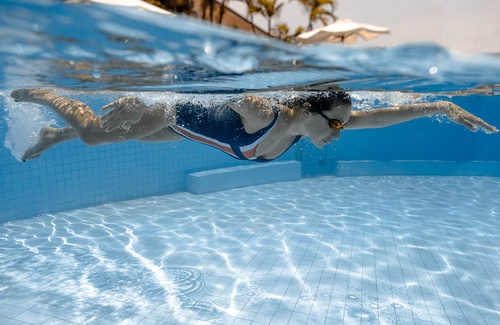Swimming pool hygiene tips

For all families, summer is the perfect time to spend a lot of time in the pool. However, we advise you to follow these few hygiene tips before bathing with Lifeguard Class.
In this way, the pool will contain less bacteria. And who says less bacteria, says need less cleaning products !
Why is hygiene so important in a swimming pool?
Pool water always contains bacteria, and these can cause illness. This is why it is essential to disinfect the water. To do this, use chlorine or another disinfectant.
Do chemicals keep bacteria out of the pool?
Chlorine is used to fight against bacteria in the pool. However, when sweat, dirt or urine is in the water, the chlorine will dissolve these impurities first, not the bacteria. It is therefore important to prevent these impurities from ending up in the pool. To do this, follow these few simple measures:
bahsine güvenilir mi
Don’t go in the water when you have diarrhea;
Take a quick shower before bathing. One minute is enough to remove all the dirt, which allows the products to be considerably more effective;
Prevent bodily fluids, such as urine, from ending up in the pool;
Do not swallow water.
How to recognize a clean swimming pool?
A clean swimming pool hardly smells of chlorine. When you perceive this typical odor, you are actually smelling the reaction of chlorine mixed with urine. The smell of chlorine is therefore not synonymous with cleanliness.
It’s because of this same reaction that your eyes turn red (irritated), your nose starts to run, or you start coughing. A clean swimming pool therefore does not have a strong smell of chlorine for Lifeguard Class.
However, you can recognize a clean and well-maintained pool by the following tips:
First, as a parent, you can test water quality by purchasing affordable test strips or a more expensive digital tester . These testers include instructions for measuring and interpreting water quality.
If the latter is not in order, we do not recommend that you go into the pool until it is restored.
Do chemicals keep bacteria out of the pool?
Chlorine is used to fight against bacteria in the pool. However, when sweat, dirt or urine is in the water, the chlorine will dissolve these impurities first, not the bacteria. It is therefore important to prevent these impurities from ending up in the pool. To do this, follow these few simple measures:
Don’t go in the water when you have diarrhea;
Take a quick shower before bathing. One minute is enough to remove all the dirt, which allows the products to be considerably more effective;
Prevent bodily fluids, such as urine, from ending up in the pool;
Do not swallow water.
How to recognize a clean swimming pool?
A clean swimming pool hardly smells of chlorine. When you perceive this typical odor, you are actually smelling the reaction of chlorine mixed with urine. The smell of chlorine is therefore not synonymous with cleanliness.
It’s because of this same reaction that your eyes turn red (irritated), your nose starts to run, or you start coughing. A clean swimming pool therefore does not have a strong smell of chlorine with Lifeguard Class.
However, you can recognize a clean and well-maintained pool by the following tips:
First, as a parent, you can test water quality by purchasing affordable test strips or a more expensive digital tester . These testers include instructions for measuring and interpreting water quality.
If the latter is not in order, we do not recommend that you go into the pool until it is restored.
In addition, you can also check if you can still see the bottom vacuum cleaners in the deep part of the pool.
Thanks to these tricks, you will always swim in a clean pool!
In addition, you can also check if you can still see the bottom vacuum cleaners in the deep part of the pool.
Thanks to these tricks, you will always swim in a clean pool!
The mental benefits of swimming
Helps to better manage stress and anxiety:
This feeling of well-being is, for a good part, generated by the soothing virtues of the aquatic element. Indeed, the sensation of lightness, weightlessness, massage and awareness of the body caused by water eliminates physical tension, contractions and pain in favor of physical and psychological relaxation.
Practiced in the evening, the effort will cause a healthy fatigue which will allow you to sleep better and to benefit from a not insignificant restorative sleep to re-attack a day of work.
Releases endorphins thus makes happy:
The state of weightlessness provided by the water allows all the muscles to relax, recalling the position of the fetus in its mother’s womb. Moreover, like any other sports practice, swimming secretes endorphins. These hormones act on the brain, spinal cord and digestive system to bring the person into a state of bliss. And if we have a chance to swim in the open sea, an obvious connection is made with the elements that can only soothe us and make us happy.
Swimming is a stress reliever
To fight against stress, it is often advisable to practice a sport to unload all your negative emotions and focus on a few other things.
Swimming is one of the sports most often recommended to overcome stress and let go to forget your daily worries.
Swimming helps boost blood circulation, and thus improve memory, mood and concentration. Being immersed in water and repeating the same movements increases blood flow to the brain.
During your swimming session, your body will secrete endorphins (pleasure hormones) which give you a feeling of well-being. This feeling of calm is amplified by the aquatic environment which causes feelings of lightness, weightlessness, massage due to the movement of water on the skin. While swimming you will feel a relaxation of muscle contractions in the neck, shoulders and back. Thanks to this, you will be able to eliminate all the accumulated physical and mental tensions and relax physically and psychologically.
If you practice swimming at the end of the day, your effort will turn into healthy fatigue, and trust us, your night will only be better and you will benefit from restful sleep.
Our advice: Swim after a day’s work to relax, twice a week if you can. Without setting high goals, have fun and relax!
Swimming helps to firm up your skin
Firming up your skin through swimming is one of the real benefits of the aquatic environment. The water will exert a certain (non-traumatic) pressure on the body and cause a massaging and draining effect which helps to reduce cellulite and love handles and also to firm the skin for Lifeguard Class. By working your legs with swimming, you will drain the stored fatty deposits and obtain visible results on the appearance of your skin and the tone of your muscles.
In addition to swimming, you can participate in AquaGym and AquaBike classes to have an even more targeted effect on your figure.
Lose weight with swimming
Swimming is one of the most effective sports in weight loss. The energy expended in swimming is what will help you lose weight with Lifeguard Class. Count between 400 and 900 calories burned depending on the intensity of your swimming session. Swimming will make it possible to solicit all the muscles of the body, the movements are subjected to a certain resistance due to the water which acts on the strengthening of the muscles. Swimming regularly will have more beneficial effects, so no need to swim 2 hours in a row, it is better to favor a session of 45min-1h twice a week already. Don’t forget to vary the swimming exercises to properly use all your muscles and avoid monotony.
But be careful not to give in to the feeling of hunger when you get out of the pool, for that, before your session, give preference to slow sugars (pasta, rice, etc.) and proteins. Do not expect to see results on your figure from the first session, what pays is regularity! By eating well and starting with short sessions of 30 minutes, you will get there!




